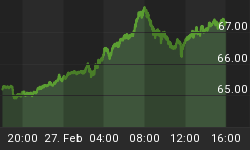Gold fell some 4% yesterday with forced selling being seen as hedge funds continue to deleverage and pension funds and other passive investors sell the various commodity indices. In addition, reports from Barclays that some European central banks had sold some 7.6 tons of gold during the week, acted to depress the market.

Central bank gold sales and leasing of gold have artificially suppressed the price of gold in recent years but with lease rates surging and central banks concerned about financial, economic and systemic contagion, this source of supply is set to dwindle in the coming months. Indeed many South American, Middle Eastern, Asian and the Russian central bank have already stated their intentions to add to their gold reserves. The German Bundesbank has clearly stated how they view gold as a an essential monetary asset. "National gold reserves have a confidence and stability-building function for the single currency in a monetary union," the Bundesbank said.
However, rumours of central bank gold sales could continue to depress prices in the short term. After the sell off last Friday, UBS noted that "we have no explanation behind the sell-off in gold and silver seen late on Friday's trading although...Some more fundamentally based traders may have been concerned by the talk of central bank selling that we heard earlier in the day. One large central bank, not a signatory to the Central Bank Gold Agreement, was rumoured to have sold gold earlier in the day.
UBS said that the rumours were without substance and said that "certainly we saw no signs of this and the rumoured central bank is considered unable to sell gold - the story in itself may have been enough to trigger some profit taking."
Demise of Hedge Funds and Falling Commodity Indices Creates Short Term Weakness in Gold
Many hedge fund managers are under severe pressure to liquidate positions as banks request more collateral to back funds' borrowing. Many hedge funds, including some of the largest, have gone to the wall in recent months and Credit Suisse estimates that 30% of roughly 8,000 hedge funds will close over the next few years.
Wealthy investors are turning their backs on high risk hedge funds as there is a reevaluation of the sensibility of massive leverage and banks are no longer willing to fund the hedge funds' speculations.
While COMEX futures gold prices have fallen, the real price for actual physical bullion continues to surge as there are little or no sellers and nearly all are buyers. Shortages of small and midsized bullion coins and bars appear to spreading to the large bar market with reports of London Good Delivery Bars becoming harder and harder to buy, get hold of and take delivery of (especially in New York).
Futures prices are falling while gold prices for physical bullion are increasing with a surge in price of premiums for all coin and bar products. Investors do not want promissory notes or futures contracts rather the safety of physical bullion. Barclays analysts note that "There has been a swing from investors investing in gold in any form to investors specifically choosing to invest in physical gold."
Yesterday the gold open interest fell 2085 contracts to 321,411. COMEX gold futures fell in the three weeks ended Oct. 7 and was at the lowest since August, 2007, according to Commodity Futures Trading Commission data. Gold open interest was as high as 506,000 in mid March when gold rose to over $1,000/oz. Bear Stearns are rumoured to have had significant long positions that they had to liquidate with JP Morgan being on the short side.
Gold was trading at $650 in August 2007 and this figure is very bullish for gold and shows it is again massively oversold on the COMEX.
Reuters Wealth Management Summit - Wealthy Favour Cash, Government Bonds and Gold
Gold has continued to tread water and not made expected gains as the process of massive deleveraging of the entire international financial system is resulting in unprecedented selling in nearly all markets including the huge commodity index funds. These index funds such as the Goldman Sachs Commodities Index, Reuters/Jefferies CRB index, the Dow Jones Commodity Index and the Dow Jones-AIG Commodity Index have been the recipients of billions of dollars of funds in recent months - often from massive corporate, state and national pension funds (such as the Irish National Pension Reserve Fund which invested in the Goldman Sachs Commodities Index).
The Reuters Wealth Management Summit heard that wealthy investors are seeking the safety of cash, government bonds and gold. World's super-rich focus on safe investments
The credit crunch has scared even the world's richest people into sticking their assets in safe havens.
Private bankers and asset managers at the Reuters Wealth Management Summit said gold, cash and government bonds were again in favour. Real tangible assets such as gold were in favour again as wealth accumulation is shunned for wealth preservation.
As the deleveraging of the global financial system continues and government and central banks internationally adopt the "inflate or die" motto, soon these investors will realize that cash and bonds are not the safe havens they thought they were and gold will become the asset class of choice as it was in the stagflation of the 1970s and the deflation of the 1930s.















